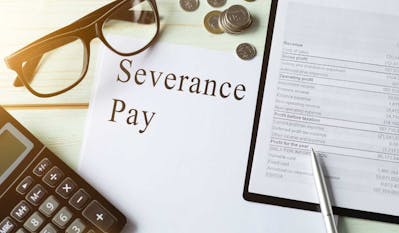Hong Kong Salaries Tax, also known simply as Salaries Tax, is the tax imposed on income earned from any employment, office, or pension in Hong Kong. It is one of the major sources of revenue for the Hong Kong government.
Hong Kong has a simple and territorial tax system. It includes taxes like Profits Tax, Salaries Tax, and Property Tax.
Salaries Tax is levied on income from employment, pensions, and offices held in Hong Kong. It covers regular salary, bonuses, commissions, director's fees, and other employment income.
Some income, like severance payments for past service and foreign source income, may be exempt from Salaries Tax.
Anyone earning income from employment, office, or pension in Hong Kong is subject to Salaries Tax.
Payments can be made online through the IRD’s eTAX platform, via bank transfer, ATM, or by mail.
Understanding Hong Kong's tax system can be tricky, especially for expats and new residents. One of the key components of this system is the salaries tax, which applies to employment income. This comprehensive guide will help you understand the essentials of Hong Kong salaries tax, from who needs to pay it to how it's calculated and filed.
Overview of Hong Kong’s Tax System
Hong Kong is known for its simple, low-tax environment, which makes it attractive to businesses and individuals alike. Here's a breakdown of the key features of its tax system:
- Simple and Territorial: The system is designed to be straightforward and adheres to the territorial principle of taxation. This means only income generated in Hong Kong is subject to tax, regardless of the taxpayer's residency.
- Separate Taxes: There's no single income tax. Instead, Hong Kong levies various taxes depending on the source of income, including profits tax, salaries tax, and property tax.
- Low Tax Rates: Tax rates across the board are generally low compared to many other countries.
Tax Rates and Types
- Profits Tax: Businesses operating in Hong Kong pay profits tax on their assessable profits. The current regime features a two-tiered system, with a lower rate for the first HKD 2 million of profits.
- Salaries Tax: This progressive tax applies to income from employment, pensions, and salaries. Individuals are taxed at a rate ranging from 2% to 17% on their net chargeable income, or a flat 15%, whichever is lower.
- Property Tax: Owners of properties in Hong Kong are subject to property tax based on the net assessable value of the property.
A cornerstone of Hong Kong's tax system is the territorial principle. This means income derived outside Hong Kong is generally not taxed within the territory. This benefits businesses and individuals who operate internationally.
This overview provides a foundational understanding of Hong Kong's tax system. It's advisable to consult with a tax professional for specific advice on your situation.
What is Salaries Tax?
Salaries tax is a form of income tax levied on earnings derived from Hong Kong employment. It applies to a broad scope of income, ensuring a fair contribution from those working in the territory.
What's Included?
The tax net encompasses various types of employment income:
- Regular Salary and Wages: This forms the core of salaries tax, encompassing your base pay and any regular compensation received for your work.
- Bonuses and Commissions: Performance-based bonuses and commissions earned in your employment are also subject to salaries tax.
- Director's Fees: If you serve as a director in a Hong Kong company, any fees you receive fall under salaries tax.
- Other Employment Income: Allowances, leave pay, severance payments, and benefits in lieu of salary may also be included, depending on the specific circumstances.
What's Not Taxed?
While most employment income is subject to salaries tax, there are some exemptions and exclusions:
- Severance Payment for Past Service: If a severance payment compensates for past service and adheres to specific guidelines, it may be exempt.
- Foreign Source Income: Following the territorial principle, income derived from employment performed entirely outside Hong Kong is generally not taxed.
- Employee Benefits: Certain employer-provided benefits, like medical insurance contributions or subsidized meals, may be exempt.
- Retirement Benefits: Defined contributions to recognized retirement schemes or mandatory provident fund contributions are typically tax-deductible.
It's crucial to consult the Inland Revenue Department (IRD) or a tax professional for a comprehensive understanding of exemptions and exclusions applicable to your specific situation. They can guide you on maximizing allowable deductions and navigating the complexities of salaries tax filing.
Who is Liable to Pay Salaries Tax?
Hong Kong's territorial principle of taxation plays a key role in determining who is liable to pay salaries tax. Here's a breakdown of who needs to file:
- Anyone earning income from employment, office, or pension in Hong Kong is subject to salaries tax, regardless of their residency status. This applies to both full-time and part-time employees.
- If you're a non-resident working in Hong Kong, the tax applies only if you render services in the territory for more than 60 days in a tax year. Exceptions exist for director's fees, which are always taxable.
How is Salaries Tax Calculated?
Salaries tax in Hong Kong uses a progressive tax system, meaning the tax rate you pay increases as your taxable income rises.
Tax Bands and Rates for the Year 2023/24:
- 2% on the first HKD 50,000
- 6% on the next HKD 50,000
- 10% on the next HKD 50,000
- 14% on the next HKD 50,000
- 17% on any remaining income
To illustrate, if your net chargeable income is HKD 200,000, the tax calculation would be as follows:
- First HKD 50,000 at 2%: HKD 1,000
- Next HKD 50,000 at 6%: HKD 3,000
- Next HKD 50,000 at 10%: HKD 5,000
- Remaining HKD 50,000 at 14%: HKD 7,000
Total salaries tax: HKD 16,000
Here's a breakdown of the calculation process:
Step 1: Assessable Income
- Start with your total income from employment in Hong Kong, including salary, bonuses, commissions, and director's fees.
- Deduct allowable expenses directly related to earning your income, such as professional fees or travel expenses (with proper documentation).
Step 2: Net Chargeable Income
- Apply relevant deductions and allowances offered by the Inland Revenue Department (IRD). These can include allowances for yourself, your spouse, and dependents.
Step 3: Tax Rate Application
- There are two options for calculating your tax liability:
- Progressive Rates: This method applies a tiered tax rate based on your net chargeable income. Rates range from 2% for the lowest bracket to 17% for the highest.
- Standard Rate: You can choose to pay a flat rate of 15% on your net income (before deductions for allowances).
Step 4: Determining Your Tax Bill
- The IRD will calculate your tax liability using whichever method results in a lower tax amount (progressive rates or standard rate).
Additional Considerations:
- Tax Credits: You may be eligible for further tax relief through tax credits for charitable donations or specific investment schemes.
- Provisional Tax: If you're a self-employed individual or have business income, you may need to pay provisional tax throughout the year.
Allowances and Deductions
Hong Kong offers various allowances and deductions to reduce taxable income.
Key personal allowances include:
- Basic Allowance: HKD 132,000
- Married Person’s Allowance: HKD 264,000
- Child Allowance: HKD 120,000 per child
Deductions are also available for:
- Charitable donations
- Mandatory Provident Fund (MPF) contributions
- Self-education expenses
- Home loan interest
Maximizing these allowances and deductions can significantly lower your tax liability.
Filing Salaries Tax Returns
The tax year in Hong Kong runs from April 1 to March 31. The Inland Revenue Department (IRD) typically issues tax returns in early May, with a filing deadline of June 1. Here’s a step-by-step guide to filing your tax return:
- Gather Documents: Collect all necessary documents, including income statements, MPF contribution receipts, and proof of allowances and deductions.
- Complete the Form: Fill out the IRD tax return form (BIR60) accurately, ensuring all income, allowances, and deductions are included.
- Submit on Time: Submit the completed form online or via mail by the deadline to avoid penalties.
Payment of Salaries Tax
Once you've filed your salaries tax return, it's time to settle your tax obligation.
The Inland Revenue Department (IRD) offers various convenient options for paying your salaries tax:
- Online Payment: You can make a secure online payment directly through the IRD's eTAX platform using your bank account. This is the fastest and most convenient method.
- Bank Transfer: Utilize online banking or visit a bank branch to transfer funds to the IRD's designated account, referencing your tax assessment number for clear identification.
- ATM Payment: Pay your tax bill at any local ATM that accepts government payments. Ensure you have your tax assessment number readily available for the transaction.
- Payment by Mail: Submit a completed payment slip (included with your tax return) along with your cheque made payable to the "Commissioner of Inland Revenue" by mail.
Penalties for Late Payment or Non-Payment
Late payment or non-payment of salaries tax can result in surcharges and interest. The initial surcharge is 5% of the unpaid amount, with an additional 10% if the tax remains unpaid after six months. Persistent non-compliance may lead to legal action.
Tips for Efficient Tax Management

Understanding Hong Kong's salaries tax system equips you to navigate your tax obligations effectively. Here are some practical tips to help you manage your tax burden efficiently:
- Stay Organized: Maintain clear records of your income throughout the year, including salary slips, bonus payments, and receipts for any deductible expenses. This simplifies the filing process and ensures you don't miss out on claiming allowable deductions.
- Plan for Allowances and Deductions: Familiarize yourself with the various allowances and deductions offered by the IRD so you can do a personal assessment. Plan your finances strategically to maximize these benefits. For instance, consider contributing to recognized retirement schemes to take advantage of deductible contributions.
- Review Tax Rates and Changes: Stay informed about any updates to tax rates or allowances announced by the IRD. This allows you to adjust your financial planning accordingly and potentially identify new opportunities to reduce your tax liability.
- Utilize eTAX: Take advantage of the IRD's eTAX platform for electronic filing. It's faster, more convenient, and offers features for tracking your tax returns and payments.
- Seek Professional Advice: Consulting a qualified tax professional can be invaluable, especially for complex situations. They can provide personalized guidance on maximizing deductions, navigating tax filing intricacies, and ensuring compliance with regulations.
- Pay on Time: Avoid penalties and interest charges by adhering to tax payment deadlines. Consider setting calendar reminders or using online banking features for automatic payments on the due date.
Conclusion
Understanding and managing Hong Kong salaries tax is essential for financial well-being. By familiarizing yourself with the tax system, calculating your tax accurately, and taking advantage of available allowances and deductions, you can ensure compliance and potentially reduce your tax burden.
Need help with Hong Kong accounting? Let Air Corporate help you streamline your finances and free up time to focus on what matters most — growing your business. Imagine having all your accounting documents organized and accessible online, anytime, anywhere.









